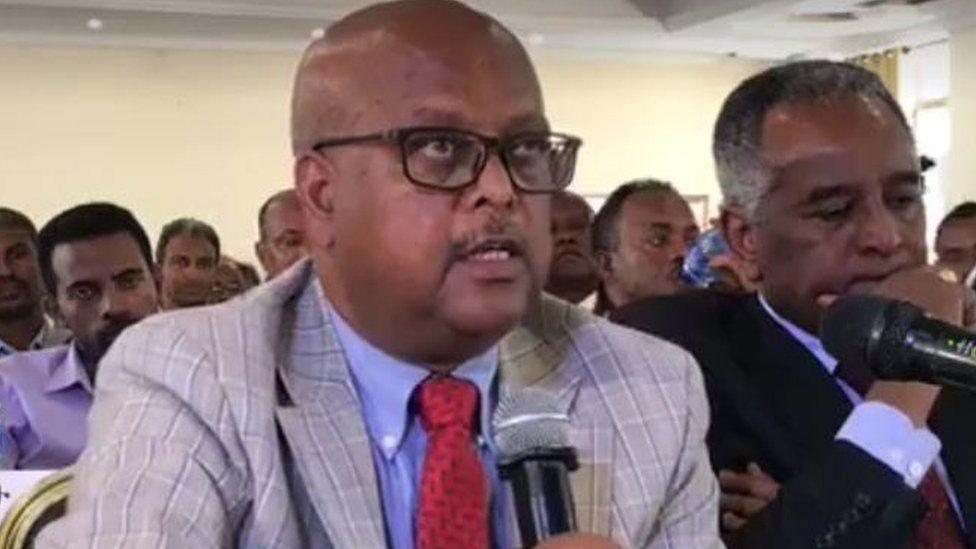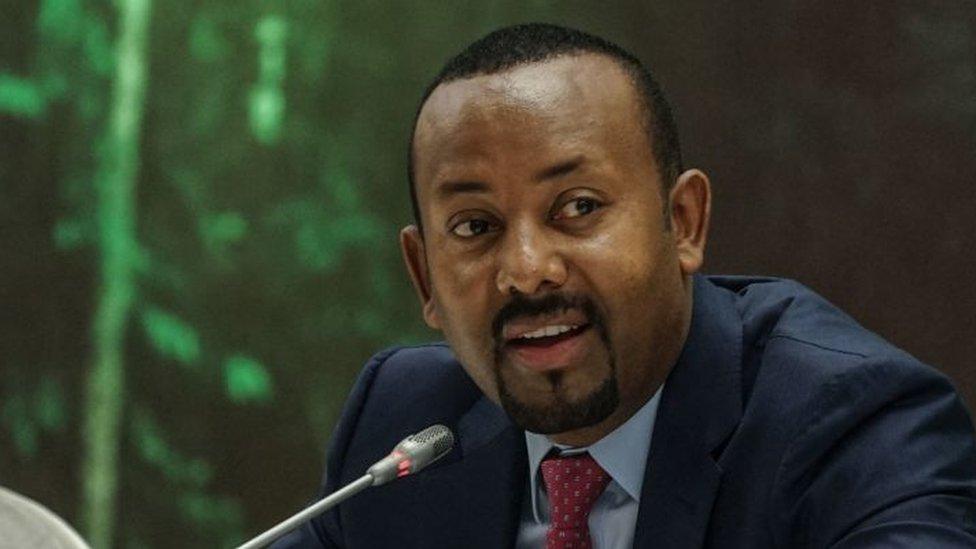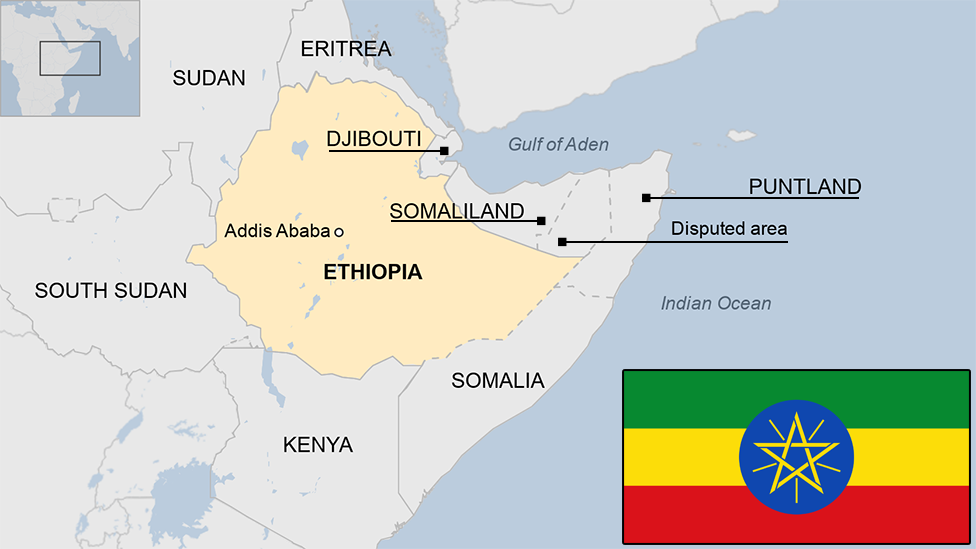Ethiopia's Tigray crisis: Rebels vow to fight on until blockade ends
- Published

The war between federal forces and the Tigray rebels is nearly nine months old
The commander of the rebel group in Ethiopia's northern region of Tigray has told the BBC they will continue fighting until their terms for a ceasefire are met.
Gen Tsadkan Gebretensae said the group aims to force the federal government to lift a blockade in the region and agree to a political solution to the crisis.
The government denies there is a blockade and has ruled out talks.
Thousands have been killed since war broke out in November last year.
Millions of people have also been displaced by the fighting which both sides have been accused of committing human rights abuses and war crimes.
At least 400,000 people are living in famine conditions, according to a UN estimate, with access to the region still being hampered. UN World Food Programme lorries did manage to reach Tigray at the weekend after a long delay because of security concerns.
However, Ethiopia's Minister for Democracy Zadig Abraha has denied that the government had blocked humanitarian aid to Tigray.
"In fact, our government supplied the most amount of humanitarian aid than all over partners combined," he told the BBC's Newshour programme.
He accused the rebels of "invoking the humanitarian aid discourse" to win sympathy from the international community.
Despite the government announcing a unilateral ceasefire in June after the rebels made significant gains, including the recapture of the region's capital, Mekelle, it has continued to mobilise militia from other parts of the country to help stall the rebels' advance in neighbouring Afar and Amhara regions.

Gen Tsadkan is accused of treason by the federal government
On Sunday, Gen Tsadkan, a former head of the Ethiopian army, told the Newshour programme that his fighters' incursion to the neighbouring regions was aimed at removing a federal blockade that has prevented aid from coming through.
He said that before a ceasefire is agreed the federal government had to:
stop the persecution of Tigrayans
release political prisoners
accept an inclusive dialogue to determine the region's future.
He said the war could have been avoided, and accused Prime Minister Abiy Ahmed of not willing to find a peaceful solution to the political standoff between the federal government and the Tigray People's Liberation Front (TPLF).
"I regret that this has happened, I regret that this could have been avoided, but I'm happy that the Tigray people fought and are in a position to demand their rightful position in the region," Gen Tsadkan said.
The Ethiopian government, which has designated the TPLF as a terrorist organisation, has dismissed calls to hold talks with the rebel leaders.
Mr Zadig said TPLF's terms for a ceasefire were "coming out of a false sense of power," warning that the government would escalate its military offensive.
"We are coming out of a humanitarian ceasefire, and if you want to see the showdown, you'll have to wait for some weeks. When we run out of patience, you will see how we're going to drive them from each and every city and village of the earth," he said.
The TPLF was Tigray's governing party until it was ousted by the national army in November last year but the rebels say they are the legitimate regional government of Tigray.
Its leaders fell out with the Mr Abiy over his political reforms, though the TPLF's capture of federal military bases in Tigray was the catalyst for the invasion.

More on the Tigray crisis:


Related topics
- Published11 October 2021

- Published2 January 2024
